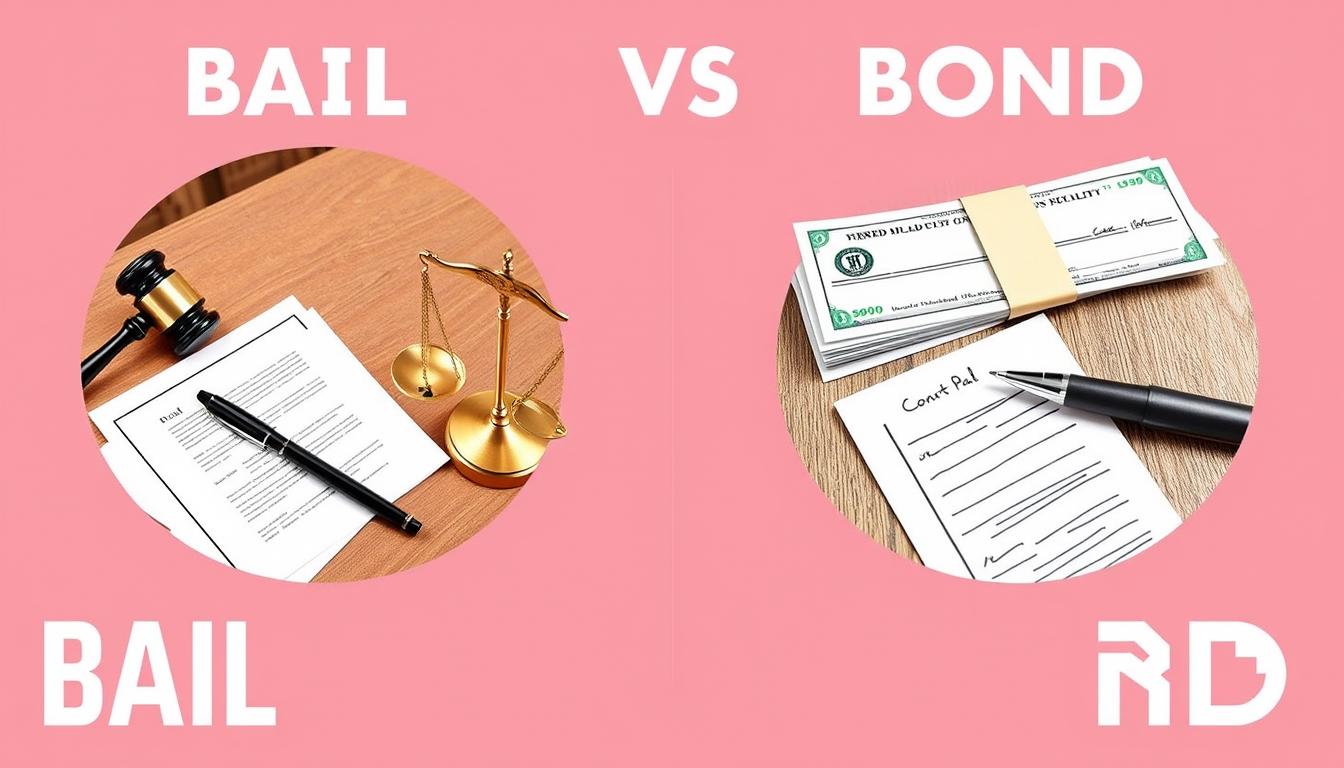Recognizing the Refine of Securing a Bail Bond: What You Need to Know
Securing a bail bond can be a complex procedure. It entails recognizing numerous elements, from the kinds of bonds offered to the associated costs. Individuals usually neglect important information that can influence their situation. The steps to get a bail bond require careful consideration and understanding of responsibilities. As the process unravels, critical choices need to be made that might affect the end result substantially. What should one prepare for when traversing this difficult landscape?
What Is a Bail Bond?
A bail bond is a financial arrangement that allows a jailed person to be released from custody while waiting for trial. This setup includes a 3rd party, generally a bondsman, who assures the court that the individual will certainly return for their arranged court looks. In exchange for this solution, the Bail bondsman normally charges a non-refundable charge, frequently a percent of the total Bail quantity.
Bail bonds serve an important function in the legal system, giving a system for offenders to maintain their flexibility throughout the pre-trial phase. This can aid them prepare for their protection more successfully. The Bail amount is identified by the court based upon various elements, consisting of the severity of the infraction, the defendant's criminal background, and the risk of flight. Ultimately, a bail bond stands for a dedication to copyright legal duties while permitting individuals the chance to continue their day-to-day lives until their court day.
How Bail Bonds Work
Bail bonds operate with an uncomplicated procedure that involves several essential steps. At first, an offender or their depictive calls a bail bond representative after an apprehension. The agent evaluates the circumstance, including the Bail amount set by the court and the offender's history. When a decision is made, the agent normally calls for a non-refundable charge, normally a portion of the overall Bail amount, typically ranging from 10% to 15%.
After the fee is paid, the agent safeguards the Bail by authorizing an agreement with the court, making sure that the accused stands for all scheduled court days. If the offender stops working to appear, the bail bond representative is accountable for the complete Bail amount, leading the agent to choose the accused. Throughout this procedure, the bail bond representative plays a crucial duty in facilitating the release of the defendant while managing the linked monetary threats.
Kinds of Bail Bonds
Comprehending the various kinds of Bail bonds is crucial for defendants and their family members as they browse the legal system. There are a number of common sorts of Bail bonds offered, each serving a details function.
One of the most common is the surety bond, which includes a Bail bondsman ensuring the full Bail amount for a charge. An additional type is the cash money bond, where the defendant or their family members pays the full Bail quantity in cash directly to the court.
Residential or commercial property bonds permit individuals to make use of realty as security for the Bail quantity. Additionally, government bonds specify to government instances, typically calling for a higher premium and a lot more stringent conditions.
Ultimately, immigration bonds are utilized in instances concerning immigration infractions. Each kind of bond has unique treatments and effects, making it vital for those included to comprehend their choices extensively.
The Expenses Included in Safeguarding a Bail Bond
Protecting a bail bond involves different costs that can considerably affect a defendant's finances. The principal cost is the premium, usually ranging from 10% to 15% of the total Bail quantity set by the court. This premium is non-refundable, despite the situation outcome, standing for the bail bond representative's charge for their services. Added expenses may consist of management fees, which some representatives impose for processing documentation, and collateral needs, where the accused may require to supply assets to safeguard the bond. In situations involving greater Bail amounts, the requirement for collateral comes to be much more pronounced. bail bonds. Accuseds need to be conscious of possible costs connected to missed court dates, which can lead to more monetary fines. Recognizing these prices is necessary for accuseds and their families, as they can substantially affect the financial problem connected with safeguarding a bail bond
The Process of Getting a Bail Bond
The process of obtaining a bail bond includes a collection of organized steps that begin with the submission of an application. Candidates have to also think about different settlement and security options that may be required by the bail bond company. Comprehending these parts is essential for navigating with the bail bond system successfully.
Application Entry Tips
When individuals are well-informed, maneuvering the application submission steps for obtaining a bail bond can be straightforward. The initial action entails picking a trusted bail bond business, which typically needs research study and suggestions. When a company is selected, the applicant should complete a bail bond application, providing important information such as the defendant's information, fees, and Bail amount. Next, the candidate might need to existing recognition and any type of relevant documents to sustain the application. After sending the application, the bail bond firm will review the details and analyze the danger involved. If approved, a rep will lay out the terms and problems before finalizing the arrangement. This process, while methodical, can vary a little depending upon the Bail and the territory bond company.

Settlement and Collateral Choices
When obtaining a bail bond, comprehending settlement and collateral choices is important, as these aspects can significantly influence the overall expense and regards to the arrangement. Usually, bail bond firms require a non-refundable charge, normally a percent of the total Bail amount, which offers as their earnings. Some companies may use adaptable these details layaway plan, enabling clients to pay in installations. In addition, security can be necessary to secure the bond, which may consist of properties like residential or commercial property, automobiles, or various other prized possessions. The kind and worth of security can affect the bond's approval and terms. Clients must thoroughly examine their economic scenario and alternatives to assure they pick a solution that aligns with their budget and situations.
Obligations of the Indemnitor
Steering through the complexities of Bail bonds requires a clear understanding of the duties of the indemnitor. The indemnitor, often a relative or friend of the defendant, plays a significant duty in the Bail procedure. This private consents to assume financial responsibility, making certain that the Bail quantity is paid if the accused stops working to appear in court. It is essential for the indemnitor to keep interaction with the bail bond agent throughout the procedure, giving any type of required information and updates pertaining to the accused's situation.
In addition, the indemnitor needs to secure security, which may include property or prized possessions, to back the bail bond. This collateral protects the bail bond firm against possible losses - bail bonds. Must the defendant fall short to conform with court requireds, the indemnitor deals with the threat of losing their security and may be held answerable for the entire Bail quantity. Because of this, recognizing these obligations is essential for the indemnitor's monetary security

Typical Misconceptions About Bail Bonds
Several individuals nurture misconceptions regarding Bail bonds, which can complicate their understanding of the Bail process. One common misconception is that Bail bonds are a form of settlement that assures a defendant's launch. Actually, they are a guarantee to the court that the defendant will certainly stand for their set up hearings. An additional usual idea is that only rich individuals can manage Bail. Bail bondsmen typically charge a percent of the overall Bail quantity, making it easily accessible to a broader variety of individuals. Furthermore, some people believe that Bail is refundable. While the premium paid to the Bail bondsman is not refundable, the Bail amount itself may be returned upon the completion of the case, provided the defendant meets all court requirements. Dispelling these misconceptions is essential for people going across the intricacies of the Bail system and guaranteeing they make notified decisions.
Frequently Asked Questions
Can I Protect a Bail Bond for Somebody in One More State?
Protecting a bail bond for someone in an additional state is feasible, yet it commonly needs dealing with a bondsman accredited in that state - bail bonds. Each territory has details guidelines that should his response be followed throughout this procedure
What Happens if the Offender Skips Bail?
A warrant is usually issued for their apprehension if an accused skips Bail. The Bail bondsman might also seek healing efforts, which might involve working with fugitive hunter to apprehend the individual and locate.
Are Bail Bondsmen Controlled by the Government?
Bail bail bondsmans are indeed managed by government authorities. Laws differ by state, however they typically need licensing, adherence to financial methods, and conformity with legislations to assure fair therapy of offenders and their families.
Can I Make Use Of Collateral Besides Cash money?
Collateral other than money can often be utilized for Bail bonds, relying on the bondsman's policies. Typical choices consist of residential property, vehicles, or other useful properties, which must usually be evaluated and concurred upon.
What Is the Role of a Co-Signer in a Bail Bond?
The function of a co-signer in a bail bond is to ensure payment if the offender falls short to appear in court. This specific accepts monetary obligation, making certain that the bail bond agreement is promoted and enforceable.
If the accused stops working to show up, the bail bond representative is liable for the full Bail amount, leading the agent to seek out the defendant. Once a company is chosen, the applicant must complete a bail bond application, providing important info such as the defendant's details, charges, and Bail quantity. Commonly, bail bond firms call for a non-refundable charge, typically a portion of the total Bail quantity, which offers as their revenue. Numerous individuals nurture misconceptions concerning Bail bonds, which can complicate their look here understanding of the Bail procedure. Collateral other than cash money can commonly be made use of for Bail bonds, depending on the Bail bondsman's policies.